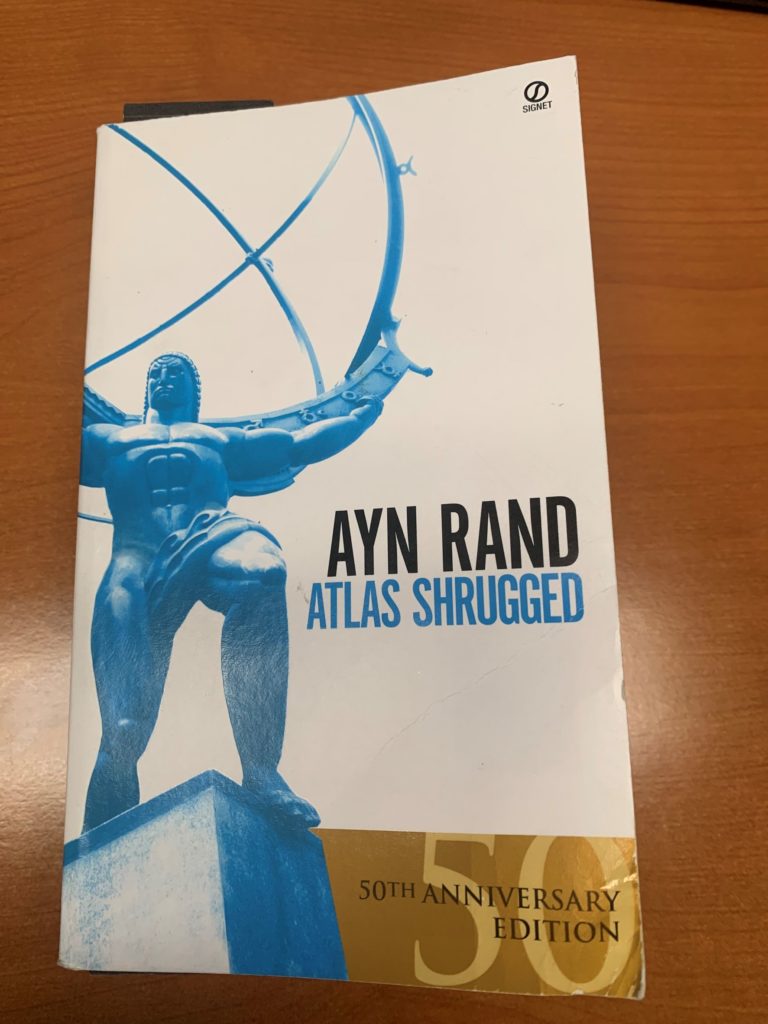I said on Monday, this is going to be a big one. This book has the tiniest font I have ever seen in a novel and it is over 1000 pages long. At this point, I have no real expectations. I am reading it for two reasons 1) is a suggested compliment when you look up 1984 on Amazon and 2) it was suggested by a co-worker back in 2004.
Part of what has shied me away has been the length of the book. I didn’t want to check it out at the library because I know I would need months. I didn’t want to add to the volumes of books that I won’t ever read again either. I have a hard time keeping interest that long. But, now I have a cause. I am hoping that is the motivating factor.

Against better judgement, I read the introduction. I must say that I had a hard time concentrating on the subject matter. But, the one thing that I got out of it was Rand’s methods. She would think about situations and scenarios, then write a story (or chapter) about it. For that reason, she was anointed the title of philosopher.
Like the other books that I have reviewed, I am going to focus on the concepts of the chapters and not the plot or the characters. I guess we will see in the end if all the pieces and parts add up to the tome that it is supposed to be.
There are some characters introduced. It is hard to know who is going to important and who is not at this point. So, I will skip the names, roles and descriptions at this point. There were two things that stuck out at this chapter. One was simple and the other more inciteful. Let us start with the simple.
“Who is John Galt?” Random characters keep uttering this phrase throughout the chapter. From what I know, this is foreshadowing to the hero character later in the book. We are going to have to wait to see what this is all about. But, using the phrase seems like an analog to ‘What is going to happen?’ or “Does this make any sense?’ It does seem like the world of the book has some things that don’t really add up. This leads us to concept two.
There are a couple exchanges in the book where people are doing things that they don’t really understand why they are doing them. There is a scene where train that stops. Characters get off the train to understand the purpose of the stoppage and the people that run the train are just staring at the stop signal. The net of communication was that they didn’t know why they were instructed to stop, how long the stoppage would be and how to proceed.
The short of it was people were doing as they were trained. It took leadership to get the train going again. If this is a persistent theme, then I am going to be really into this book.
End Your Programming Routine: This might be a mistake to analyze this book as we go, but I guess we will see. I envision doing a chapter a week unless for some reason I get way ahead or it makes sense to combine chapters. It does look like they average around 30 pages a week, so that seems pretty reasonable
Recent Comments